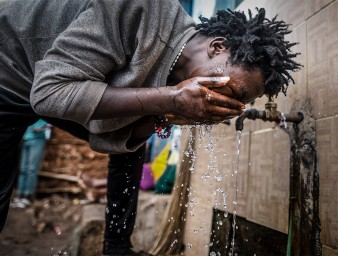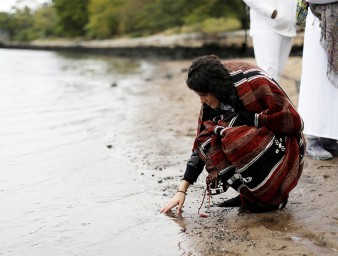Water and sanitation rights explained
27 November 2014

Catarina De Albuquerque, UN Special Rapporteur on the human right to safe drinking water and sanitation, has been proud of the numerous dialogues and meetings she had had with stakeholders over the years about making human rights a central way of thinking about water and sanitation. And yet, she says, she was also somewhat embarrassed.
“People would say ‘We understand that water and sanitation are human rights. But tell us what it means for us and how to implement them.’ And I had to overcome my sense of guilt realizing that I did not have a full set of answers to give them.”
Now, De Albuquerque does have a more complete set of answers. "Realizing the human rights to water and sanitation” is a handbook aimed at providing all levels of governments, donors and others with guidance on the meaning of human rights to water and sanitation. The handbook is a compilation of the information, ideas and strategies around the issue gleaned from interviews and consultations with a variety of people including activists, lawyers, government officials, engineers, and business officials.
“The past six years have brought me into contact with so many well-informed, interesting and engaged people,” she said during a launch event for the handbook at UN Headquarters in New York. “The development of this handbook has been achieved through a long and detailed process of consultations…carefully weighed up and measured against what I have experienced in the six years of my mandate.”
The handbook outlines specific areas of activity that State institutions and others, including service providers and donors are responsible for and outlines steps that should be taken in order to ensure human rights to water and sanitation are considered. These areas are: legislative, regulatory and policy frameworks; financing, budget and budget-tracking; planning and service provision; monitoring and compliance; and access to justice.
De Albuquerque was in New York to attend the 69th Session of the General Assembly Third Committee. There she presented her report on the right to participation in the context of realizing the human rights to water and sanitation. Her report gives recommendations on what elements are essential for ensuring active, free and meaningful participation, how difficulties in ensuring participation can be addressed, and what participation entails at different levels of decision-making.
“Participation is a human right,” De Albuquerque said. “As such, it is an obligation that demands compliance.”
De Albuquerque has recently pushed the subject of a more humane and human rights approach to access to water during a visit to the United States city of Detroit. More than 27,000 Detroit residences have had their water cut off due to non-payment. She, along with fellow Special Rapporteur on adequate housing Leilani Farha, called the water cut-offs “contrary to human rights” and urged the local authorities to adopt a mandatory affordability threshold. They also recommended that the United States federal government adopt a federal minimum standard on affordability for water and sanitation.
“Water and sanitation does not have to be free,” the two said in a joint statement. “It must rather be affordable for all. A human rights framework provides that people should not be deprived of these rights if they cannot pay the bill for reasons beyond their control.”
27 November 2014




